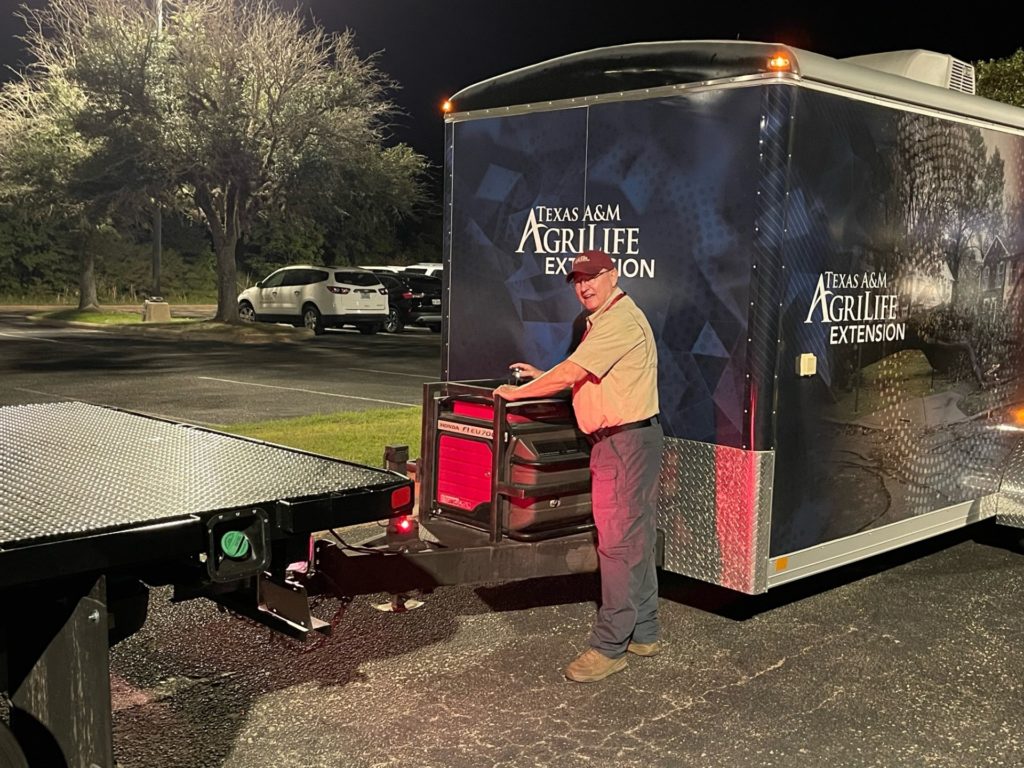AgriLife Extension disaster response agents assist in Florida
Agency joins fellow Texas A&M University System members in Hurricane Ian relief
Twenty-one Disaster Assessment and Recovery, DAR, agents with the Texas A&M AgriLife Extension Service are part of a rotating deployment to Fort Meyers, Florida, in response to Hurricane Ian relief efforts.

Three teams of seven DAR agents will be supporting 13 staff members of the Texas A&M Veterinary Emergency Team, another member of the Texas A&M University System’s emergency management network, in providing logistical and administrative support for working canines that are part of urban search and rescue efforts.
Additionally, the agents will be ready to provide a variety of other animal response activities in the weather-battered region of the state.
Supporting Florida through skilled disaster response
“AgriLife Extension is well positioned to respond to natural disasters and provide specialized assistance with animal response,” said Rick Avery, Ph.D., AgriLife Extension director. “Our agents are ready to support Florida during this time of great need.”
The DAR team will provide an array of specialized services, including offering shelter for displaced animals.
“This is a mutual aid situation where a state needs a certain level of partnership, and we have a great partnership with the Texas A&M Veterinary Emergency Team,” said Monty Dozier, Ph.D., AgriLife Extension Disaster Assessment and Recovery program coordinator, Bryan-College Station. “Our agents have a special skill set for logistics support and that frees up the veterinary team to conduct specialized animal care.”
AgriLife Extension DAR agents taking part in the Florida recovery mission include Dozier, Bryan Davis, Seguin; Matthew Rodriguez, Weslaco; Ricky Griffin, Carrizo Springs; Linda Wasserman, Corpus Christi; Asa Jillson, College Station; and Marshall Mohr, Brenham.
The Texas A&M Veterinary Emergency Team consists of seven veterinarians, six veterinary technicians, three small animal mobile medical platforms and two mobile veterinary trucks – to provide veterinary support for over 80 search and rescue canines. The team will provide 24-hour continuous operations as the canines work through rubble, debris and challenging environments as part of rescue missions.
Meanwhile, the Texas A&M Forest Service has deployed one lntrastate Fire Mutual Aid System consisting of 23 firefighters, five fire engines and two command vehicles. These will provide structural firefighting support to local jurisdictions in Florida. An All-Hazards Incident Management Team consisting of 12 personnel supporting field operations in impacted areas and one mobile command post are also deployed.


